- Home
- John Scalzi
The Consuming Fire (The Interdependency) Page 2
The Consuming Fire (The Interdependency) Read online
Page 2
By the time Lenson had finally heard about Witt’s untimely encounter with the cold, dark vacuum of space, however, he was no longer on the Agreed; he was a student at the University of Xi’an’s seminary school, the preeminent school for the Church of the Interdependency. Lenson’s unconventional upbringing on a spaceship made him an object of some curiosity to his fellow seminarians, but only at first; what marked him further as an object of curiosity was his vision of the Prophet.
“Sounds like hypoxia,” Ned Khlee, one of his first-year flatmates, told him in a late-night bull session, taking a swig of frado, a mildly psychotropic liqueur, and passing it on to Lenson.
“It wasn’t hypoxia,” Lenson said, taking the frado and passing it immediately to his right.
“I mean, you were hypoxic, right?” Sura Jimn, his other flatmate said, taking the bottle. “Your ship had a gash in it. Air was sucked out into space. Your cabin was leaking air for hours.”
“Yes,” Lenson admitted. “But I don’t think that was why I saw her.”
“Pretty sure it was,” Khlee said. He reached across Lenson to take back the frado from Jimn.
“So neither of you ever had a vision of Rachela? Ever?” Lenson asked, discomfited.
“Nope,” said Khlee. “I hallucinated a lizard once, but I was very high at the time.”
“It’s not the same thing,” Lenson said.
“It’s kind of the same thing,” Khlee said, and took another swig from the bottle. “A couple hits of this, and I might see it again.”
Lenson decided that it probably wouldn’t be a good thing to confide in his flatmates any more on this particular matter. Nor, as it would turn out, would he be confiding in most of his seminary mates. His fellow seminarians were generally kind, nice, moderate and compassionate individuals, all of whom had a practical, realistic streak in them, none of whom had ever experienced an ecstatic, religious fervor in their life, either for Rachela or for anyone else.
“The Church of the Independency is a largely practical religion,” the Reverend Huna Prin, Lenson’s curriculum advisor, told him in an early meeting, when Lenson decided he needed guidance on the matter and Prin seemed to him the one person obliged to address his issues without undue judgment. “It doesn’t really lend itself to mysticism, either in its tenets or its daily application. It’s closer to something like Confucianism than Christianity in its root.”
“But Rachela herself had visions,” Lenson protested, holding up the paperback of Kowal’s The Annotated Prophecies of Rachela I he’d happened to be carrying about and waving it at his advisor.
“Yes she did,” Prin agreed. “And of course one of the great discussions within the church is about the nature of those visions. Were they visions, actual communications with the divine, or ‘visions’”—Lenson sensed the quotation marks around the world—“meant as parables to help a divided humanity understand the need for a new ethical system that focused on cooperation and interdependency on a much greater scale than ever existed before?”
“Over the history of the church these debates raged,” Lenson said, nodding, echoing a primary text he’d read when he was much younger, imagining the brilliant early theologians going after each other in a high-stakes battle for the soul of the church.
“Well, raged is probably overstating it,” Prin said. “I think at the Fifth Ecclesiastical Diet Bishop Chen threw a cup of tea at Bishop Gianni, but that was less about the fundamental nature of the visions than the fact Gianni kept interrupting Chen, and she was sick of it. On the whole the early debates were orderly and concerned about the practical issues of how to present the visions. The early bishops were well aware that charismatic religions have a tendency to breed schisms and divisions, which is against the fundamental concept of interdependency.”
“Surely there are others who have had visions like mine,” Lenson said to Prin, and in later memories of the conversation he remembered the pleading nature of the question to his advisor.
“The history of the church records occasional priests and bishops who claimed religious visions, and used them as justification for attempted schisms,” Prin allowed. “The church has an inquiry process for it, which any priest or bishop who claims the visions must undergo.”
“What happens?”
“If I recall correctly usually the priests claiming visions are referred to medical attention for previously undiagnosed mental health issues, treated and returned to service, or retired if the issues persist.”
Lenson frowned. “So the church declares them crazy.”
“‘Crazy’ is a loaded term. I think it’s better said that the church realizes as a practical matter that visions usually aren’t actually divinely inspired but the result of other, less dramatic phenomena. Better to address that than to let the condition persist and possibly risk a schism.”
“But I had a vision and my mental health is fine.”
Prin shrugged. “Sounds like hypoxia to me.”
Lenson brushed this aside. “What happens if an emperox claims to have visions?” he asked. “They’re the actual head of the church. Do they go up against an inquiry?”
“I don’t know,” Prim admitted. “It hasn’t happened since Rachela.”
“Never,” Lenson said, skeptically.
“After their investiture the emperoxs don’t tend to bother with the church much,” Prin said. “They have other things to worry about. And so do you, Lenson.”
“So you think I should just chalk up my vision to lack of oxygen.”
“I think you should view your vision as a gift,” Prin said, holding up her hand to calm her advisee. “However it came to you, it inspired you to a life of service in the church, and that’s a blessing to you and has the potential to be a blessing to the church. It’s already been life changing to you, Lenson. Are you happy with the path it’s put you on?”
“Yes,” Lenson said, meaning it.
“Then there you are,” Prin said. “In that sense it doesn’t matter whether it was divinely inspired or the result of a temporary lack of oxygen. What matters is that in the aftermath—and while you did have enough oxygen—you decided to make the church your vocation. So let’s you and I make the most of that, shall we?”
Lenson decided to make the most of it, and plunged into his seminary studies. Some of his early elective classes delved into the mysticism of the Church of the Interdependency, but ironically they were taught in a dry and unengaging style; the church’s approach to what otherwise might be forbidden or apostate writings was not to avoid them but to smother the romance out of them with volumes of commentary apparently designed to put the reader to sleep. Lenson read all he could stand and found his interest draining away, slowly at first and more rapidly as time went on.
Two things were happening to Lenson. The first was, simply, that the day-to-day needs of his seminary and pastoral education were taking an upper hand. The amount of time and interest he could give over to the more esoteric aspects of the church—as little as that eventually turned out to be—was shrinking as he managed the more prosaic topics of service and community engagement and did his time in Xi’an and Hub watching and helping priests and church lay employees tend to their duties, duties that he would one day assume. It was more difficult to stay engaged with the esoterica of one’s religion when one was helping stock candles for services.
The second was that Lenson’s own fundamental, practical nature, passed down to him from his parents through nature and nurture and never fully tamped down even at the height of his religious conversion, slowly and surely reasserted itself, aided rather than dissuaded by the Church of the Interdependency’s mundane aspects. Lenson found that the routine and quiet systems of control the church offered appealed to him and that he moved well within them. Over the course of his years at the seminary he transformed himself in the eyes of his professors and fellow students from an object of curiosity to a model seminarian, one who was marked for his potential for an upward path in the church.
>
Lenson let himself be carried along in this wave of approbation and affection, in his first postings after his ordination to Bremen (where his parents, after carefully waiting out certain statutes of limitations, had retired, comfortably), and then to his later postings back at Hub, and eventually to Xi’an itself, where in the fullness of time he was made a bishop, with a portfolio for maintaining church services to the poorest of the citizens of the Interdependency—a post that put a premium on the practical rather than the purely spiritual side of the church.
As Lenson, now Bishop Ornill, moved further up and deeper into the Church of the Interdependency, the more the instigating event of his joining the church, the vision of the Prophet Rachela, was demoted in his memory. From a galvanizing moment of conversion, it eventually became a quiet source of faith, then an odd event that had led to a life choice, then a story for close friends in the church, then an anecdote for parishioners and finally a punch line at cocktail parties, where it was dutifully trotted out for new acquaintances when another bishop asked him to recount it.
“It sounds like a beautiful moment,” one young woman said to him, at such a party.
“It was probably hypoxia,” he replied in a charmingly deprecating manner.
In some small corner of his mind, Lenson was aware that it was a shame that his sole moment of religious ecstasy had over time been rationalized down to the residue of a malfunctioning metabolic process, by himself no less than by others. But his response to that small corner was, he thought, a good one: that in place of one misattributed moment of mysticism, he had accrued a lifetime of practical service in a church that served as one of the cornerstones of the most successful and in many ways the most enduring of all human civilizations. The cynical would say that the church, so well integrated as it was into the imperial system, was just another lever of control, but Lenson was also aware that the cynical could afford the luxury of their cynicism because of the stability of the system they mocked.
In short, there was almost nothing mystical about Lenson’s religion, or in these later days, to his faith. But it did not mean his faith was lessened. In fact his faith was stronger than it ever was. But it was not faith in the Prophet Rachela. It was faith in the church that sprang from her, a practical church, designed to endure through centuries and to help the empire that grew up with it endure as well. He believed in the Church of the Interdependency, and its mission, and his mission, within the warm and solid and fundamentally mundane confines of its rule. He was at peace with his practical faith.
It was this Bishop Lenson Ornill who, with all the other bishops of the Church of the Interdependency as could be assembled within the allotted time, sat in the pews of Xi’an Cathedral awaiting Emperox Grayland II, the titular head of the Church of the Interdependency, who had, unusually, decided to address the principals of her church as the cardinal of Xi’an and Hub—which is to say, as the actual head of the Church of the Interdependency—rather than in her more prosaic guise of emperox.
This raised eyebrows, since no other emperox in living memory had chosen to do so. The last who had, Erint III, has done so over three hundred standard years previously, and it had been on the rather dry subject of the redrawing of ecclesiastical districting so bishoprics were better apportioned by population. Current dioceses were perfectly acceptable from a population point of view; it wouldn’t be on that.
Likewise Grayland II, while considered pleasantly ineffectual by the bishops in her role as emperox, had not to this point shown any particular affinity for the church as an entity. She had recently been preoccupied with an attempted rebellion by the Nohamapetan family and a theoretical issue regarding the stability of the Flow streams around the Interdependency, neither of which was directly related to the church, its processes or mission.
The idea that the emperox would wish to address the bishops on an ecclesiastical matter was surprising and, some would even say, perhaps cheeky. The general feeling of the bishops assembled was that they were willing to listen tolerantly to whatever musings their young emperox might have, and then go to the formal reception with her afterward, have some nibbles and a photograph with her, and then always have the event as a curious memory and conversation piece. Certainly Lenson thought this was the way it would go.
Thus was Bishop Lenson Ornill—and, to be fair, the rest of the bishops of the church—caught unawares when Grayland II, in the simple vestments of an ordinary priest rather than her cardinal finery, stood at the edge of the chancel and began by saying, “Many years ago, our ancestor and predecessor Rachela had visions. Those miraculous visions brought about our church, this church, this foundation upon which rests our entire civilization. Brothers and sisters, we have good news. We too, have had visions. Wonderful visions. Miraculous visions. Visions which speak to the mission of our church, and its role in the turbulent times of which we stand at the precipice. Rejoice, brothers and sisters. Our church is called to a new spiritual awakening, for the salvation of humanity in this world, and beyond it.”
Lenson Ornill took in Grayland II’s words, their intent and meaning, what they boded for the church as he understood it, his faith as he had developed it, and the genesis of his engagement with both, trapped in that small cabin, struggling to breathe, all those many long years ago. And then, quite without meaning to, he uttered the words to encapsulate what he was feeling about each, in this one epochal moment.
“Well, fuck,” he said.
BOOK ONE
Chapter
1
In the beginning was the lie.
The lie was that the Prophet Rachela, the founder of the Holy Empire of Interdependent States and Mercantile Guilds, had mystical visions. These visions prophesied both the creation and the necessity of that far-reaching empire of human settlements, strung out across light-years of space, connected only by the Flow, the metacosmological structure that humans compared to a river. They thought of it as a river mostly because human brains, originally designed for hauling their asses across the African savannah and not much upgraded since then, literally could not comprehend what it actually was, so, fine, “river” it was.
There was no mystical element involved in the so-called prophecies of Rachela at all. The Wu family ginned them up. The Wus, who owned and ran a consortium of businesses, some that built starships and others that hired out mercenaries, looked at the then-current political climate and decided the time was right to make a play for control of the Flow shoals, the places where humanly understandable space-time connected with the Flow and allowed spaceships to enter and exit that metaphorical river between the stars. The Wus understood well that creating tolls and monopolizing their extraction was a much more stable business model than building things, or blowing them up, depending on which of the Wus’ businesses one contracted. All they needed to do was to create a reasonable justification to make themselves the toll collectors.
In the meetings of the Wus, the prophecies were proposed, accepted, written, structured, A/B tested and honed before they were attached to Rachela Wu, a young scion of the family who was already well-known as the public charitable face of the Wu family and who also had a razor-sharp mind for marketing and publicity. The prophecies were a family project (well, the project of certain important members of the family—you wouldn’t just let anyone in on it, too many of the cousins were indiscreet and good only for drinking and being regional executives), but it was Rachela who sold them.
Sold them to whom? To the public at large, who needed to be convinced of the concept of the far-flung and disparate human settlements coming together under a single, unified governmental umbrella, incidentally to be headed by the Wus, who as it happened would collect levies on interstellar travel.
Not just Rachela, to be sure. In each star system, the Wus hired and bribed local politicians and publicly acceptable intelligentsia to promote the idea from a political and social point of view, to the sort of people who would like to imagine they needed a cogent and logical reason to
toss away local sovereignty and control to a nascent political union that was already being constructed on imperial lines. But for the ones who either weren’t that intellectually vain, or simply preferred to get the idea of an interdependent union from an attractive young woman whose nonthreatening message of unity and peace just made them feel good, well, here was the newly dubbed Prophet Rachela.
(The Wus didn’t bother selling the mystical idea of the Interdependency to the other families and large corporations that they and their conglomerate moved among. For those they took another tack instead: Support the Wus’ plan for rent-seeking disguised as an altruistic exercise for nation-building and in return get a monopoly on a specific, durable good or service—in effect, trade their current businesses, with their annoyingly spikey boom-and-bust cycles, for a stable, predictable and ceaseless income stream, for all time. Plus a discount on the tolls the Wus were about to enact on Flow travel. In point of fact these weren’t discounts at all, because the Wus were planning to charge for a thing that used to be without cost to anyone. But the Wus assumed that these families and companies would be so dazzled by the offer of an unassailable monopoly that they wouldn’t kick. Which turned out to be mostly correct.)
In the end it took the Wus less time than they expected to pull off their Interdependency scheme—within ten years the other families and companies were in line with their monopolies and promised noble titles, the paid-for politicians and intellectuals made their case, and the Prophet Rachela and her rapidly expanding Interdependent Church mopped up most of the rest of the public. There were holdouts and stragglers and rebellions that would go on for decades, but by and large the Wus had correctly picked their time, their moment, and their goal. And for the troublemakers, they had already decided that the planet called End, the human outpost in the newly imagined Interdependency that took the longest to get to, and to get back from, and had only a single Flow shoal in and out, would be the official dumping ground for anyone who got in their way.

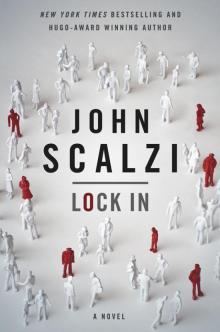 Lock In
Lock In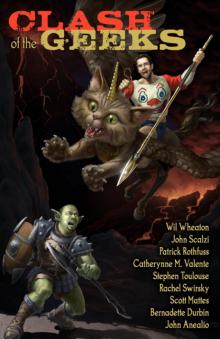 Clash of the Geeks
Clash of the Geeks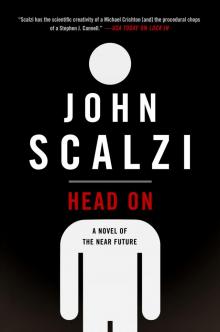 Head On
Head On The Dog King
The Dog King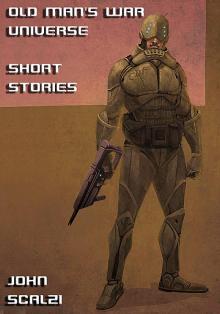 Old Man's War Universe: Short Stories
Old Man's War Universe: Short Stories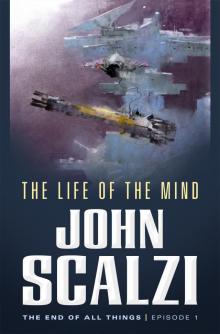 The End of All Things
The End of All Things Tales From the Clarke
Tales From the Clarke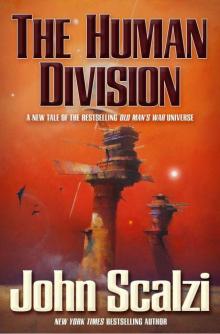 The Human Division
The Human Division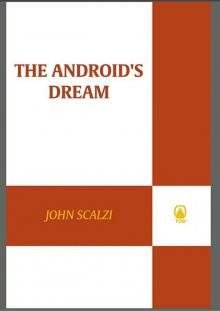 The Android's Dream
The Android's Dream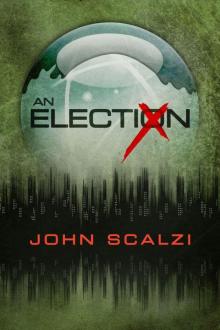 An Election
An Election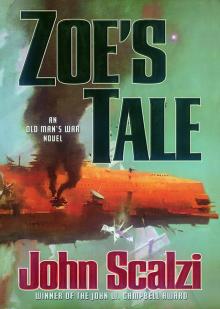 Zoe's Tale
Zoe's Tale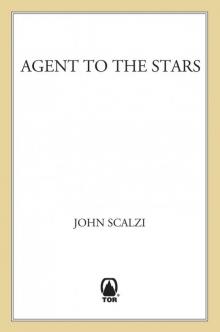 Agent to the Stars
Agent to the Stars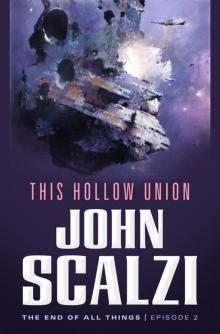 This Hollow Union
This Hollow Union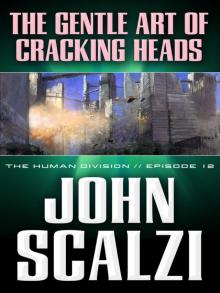 The Gentle Art of Cracking Heads
The Gentle Art of Cracking Heads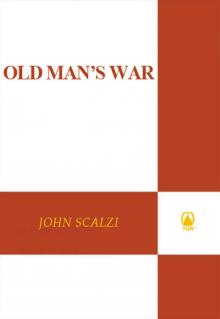 Old Man's War
Old Man's War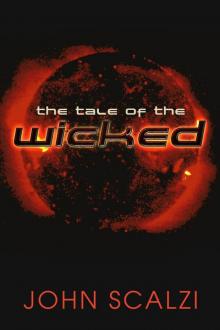 The Tale of the Wicked
The Tale of the Wicked Your Hate Mail Will Be Graded: A Decade of Whatever, 1998-2008
Your Hate Mail Will Be Graded: A Decade of Whatever, 1998-2008 Judge Sn Goes Golfing
Judge Sn Goes Golfing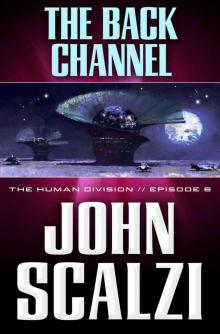 The Back Channel
The Back Channel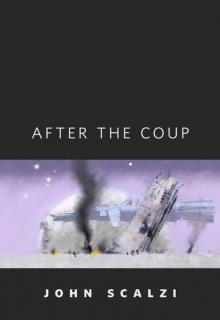 The Human Division 0.5 - After the Coup
The Human Division 0.5 - After the Coup Fuzzy Nation
Fuzzy Nation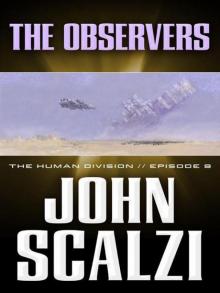 The Observers
The Observers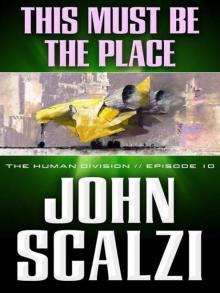 This Must Be the Place
This Must Be the Place The Last Colony
The Last Colony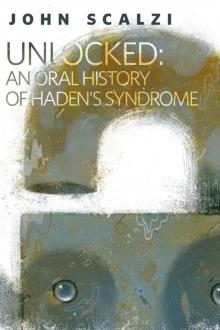 Unlocked: An Oral History of Haden's Syndrome
Unlocked: An Oral History of Haden's Syndrome A Voice in the Wilderness
A Voice in the Wilderness Redshirts
Redshirts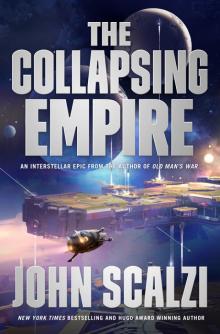 The Collapsing Empire
The Collapsing Empire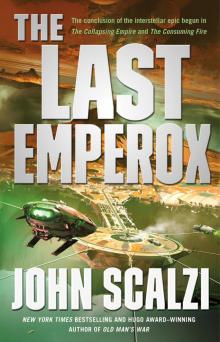 The Last Emperox
The Last Emperox The God Engines
The God Engines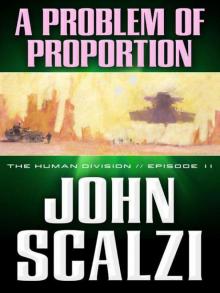 A Problem of Proportion
A Problem of Proportion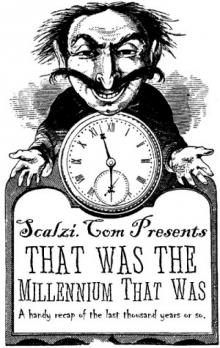 THAT WAS THE MILLENIUM THAT WAS
THAT WAS THE MILLENIUM THAT WAS The B-Team
The B-Team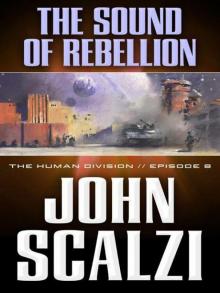 The Sound of Rebellion
The Sound of Rebellion The President's Brain Is Missing
The President's Brain Is Missing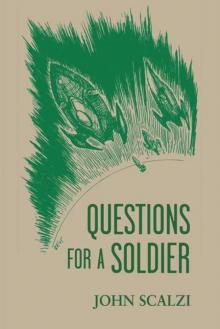 Questions for a Soldier
Questions for a Soldier Walk the Plank
Walk the Plank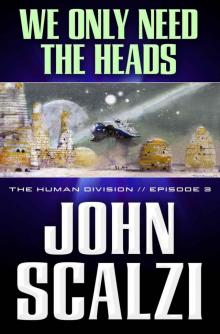 We Only Need the Heads
We Only Need the Heads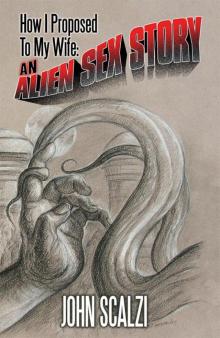 How I Proposed to My Wife: An Alien Sex Story
How I Proposed to My Wife: An Alien Sex Story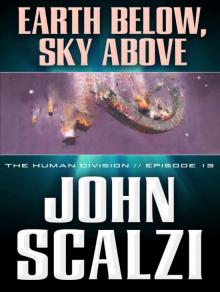 Earth Below, Sky Above
Earth Below, Sky Above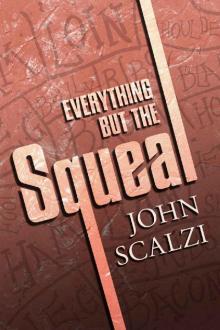 Everything but the Squeal
Everything but the Squeal Old Man’s War
Old Man’s War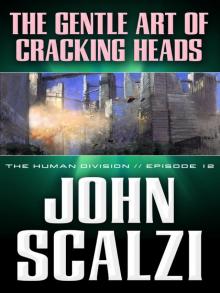 The Human Division #12: The Gentle Art of Cracking Heads
The Human Division #12: The Gentle Art of Cracking Heads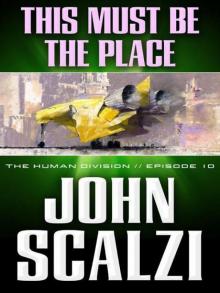 This Must Be the Place thd-10
This Must Be the Place thd-10 A Voice in the Wilderness thd-4
A Voice in the Wilderness thd-4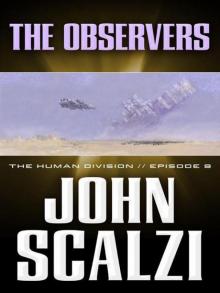 The Observers thd-9
The Observers thd-9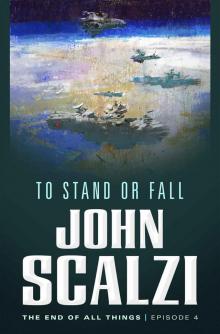 The End of All Things: The Fourth Instalment
The End of All Things: The Fourth Instalment Earth Below, Sky Above thd-13
Earth Below, Sky Above thd-13 Zoe`s Tale вбиос-4
Zoe`s Tale вбиос-4 After the Coup
After the Coup Miniatures: The Very Short Fiction of John Scalzi
Miniatures: The Very Short Fiction of John Scalzi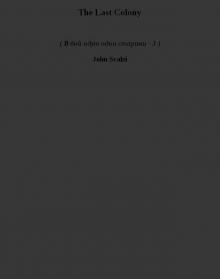 The Last Colony вбиос-3
The Last Colony вбиос-3 Tales From the Clarke thd-5
Tales From the Clarke thd-5 Old Man's War omw-1
Old Man's War omw-1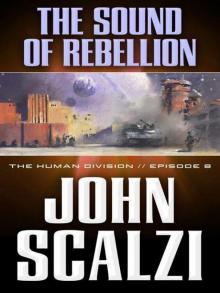 The Human Division #8: The Sound of Rebellion
The Human Division #8: The Sound of Rebellion The Ghost Brigades omw-2
The Ghost Brigades omw-2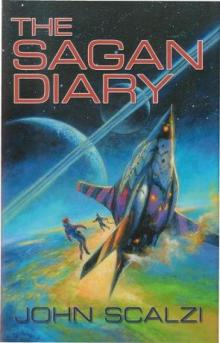 The Sagan Diary (old man's war)
The Sagan Diary (old man's war)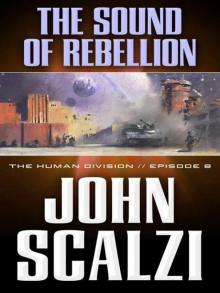 The Sound of Rebellion thd-8
The Sound of Rebellion thd-8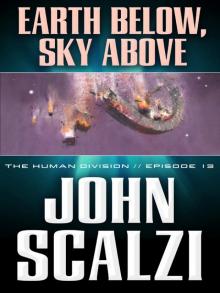 The Human Division 13 - Earth Below, Sky Above
The Human Division 13 - Earth Below, Sky Above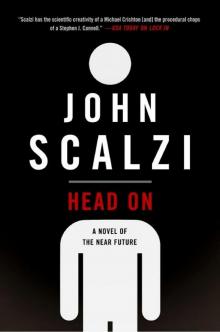 Head On_A Novel of the Near Future
Head On_A Novel of the Near Future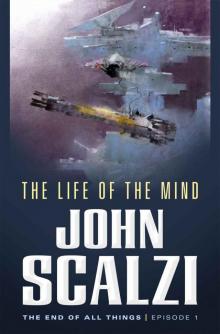 The End of All Things: The First Instalment
The End of All Things: The First Instalment The B-Team thd-1
The B-Team thd-1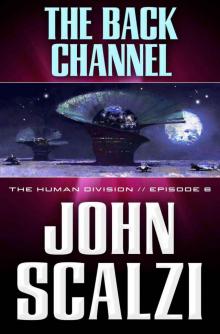 The Back Channel thd-6
The Back Channel thd-6 Walk the Plank thd-2
Walk the Plank thd-2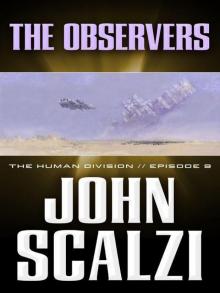 The Human Division #9: The Observers
The Human Division #9: The Observers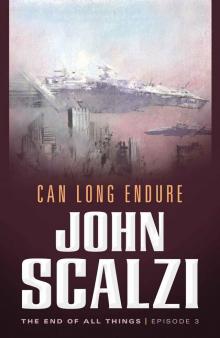 The End of All Things: The Third Instalment
The End of All Things: The Third Instalment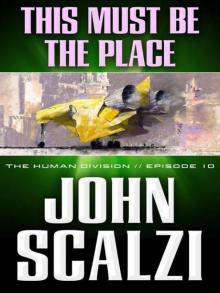 The Human Division #10: This Must Be the Place
The Human Division #10: This Must Be the Place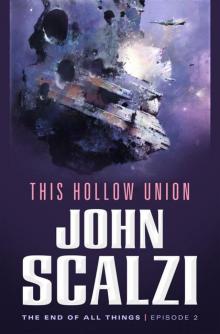 The End of All Things #2: This Hollow Union
The End of All Things #2: This Hollow Union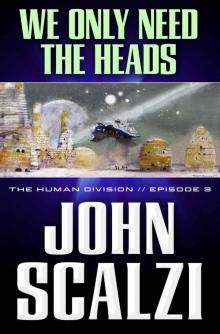 We Only Need the Heads thd-3
We Only Need the Heads thd-3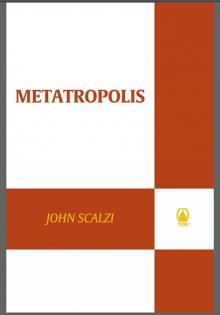 Metatropolis
Metatropolis The Dog King thd-7
The Dog King thd-7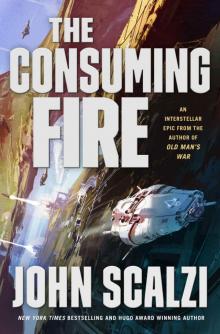 The Consuming Fire (The Interdependency)
The Consuming Fire (The Interdependency)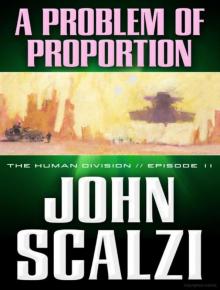 The Human Division #11: A Problem of Proportion
The Human Division #11: A Problem of Proportion